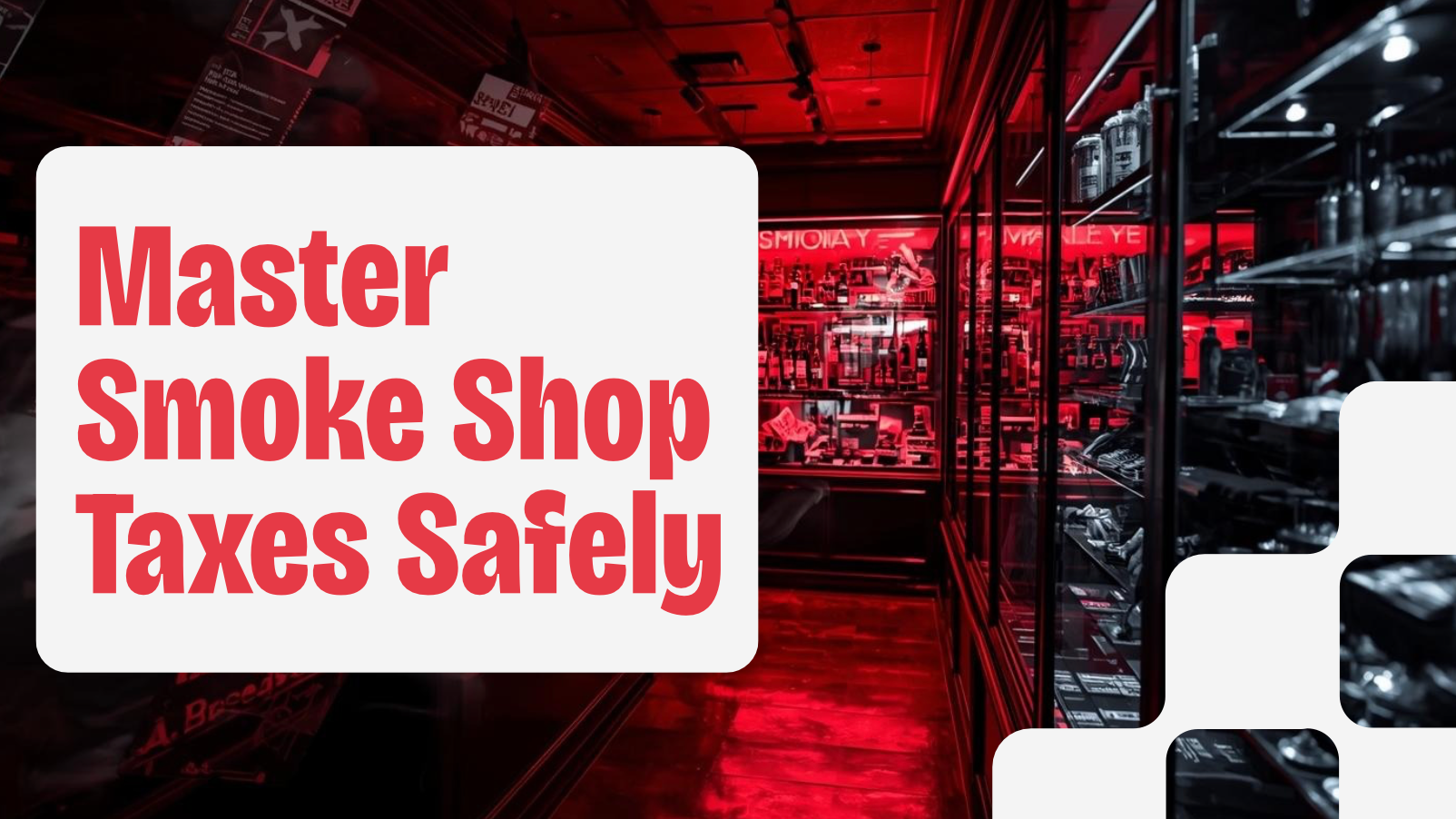Taxes aren’t fun, they’re not sexy, and nobody brags about them. But taxes are one of the biggest reasons smoke shop owners lose money, get fined, or flat‑out shut down.
Most shop owners treat taxes like an afterthought—they ignore them all year, then scramble at tax time with a shoebox full of receipts and a prayer. That’s not business—that’s a disaster waiting to happen.
Here’s the no‑BS truth: if you don’t control your taxes, your taxes will control you. And Uncle Sam doesn’t play nice.
This post breaks down how to handle smoke shop taxes the right way—so you keep more of your money, avoid penalties, and sleep at night knowing the IRS isn’t about to kick your door down.
Step 1: Accept That Taxes Are Non‑Negotiable
First rule: stop acting like taxes are optional. They’re not.
-
You owe sales tax on products.
-
You owe excise tax (depending on your state) on tobacco, vape, and sometimes kratom or hemp.
-
You owe income tax on profits.
-
You may owe payroll tax if you have employees.
Ignoring or underreporting isn’t “saving money”—it’s digging your own grave. So get it out of your head: taxes are the cost of doing business.
Step 2: Separate Business and Personal from Day One
The IRS loves catching sloppy owners who mix personal and business.
-
Separate bank accounts. Business money goes into business accounts only.
-
Separate cards. Don’t buy groceries on your business card.
-
Track every dollar. If you can’t prove it, you don’t get to deduct it.
This is basic discipline. Without it, your tax life is chaos.
Step 3: Understand Your Sales Tax Obligations
Sales tax is where most smoke shops screw up.
-
Collect it properly. It’s not your money—it belongs to the state.
-
File on time. States don’t play with sales tax. Miss one filing, and fines pile up fast.
-
Double‑check rules. Some products (like CBD or accessories) may not be taxed the same way as tobacco.
If you don’t know the rules in your state, hire someone who does.
Step 4: Stay Ahead of Excise Taxes
Tobacco and vape excise taxes are brutal if you’re not prepared.
-
Know your rates. Some states tax per unit, others by percentage.
-
Keep invoices. You’ll need them for proof if you’re audited.
-
Don’t buy shady stock. If it’s untaxed product, you’re the one on the hook when inspectors find it.
Excise tax evasion is a shop killer. Don’t play games with it.
Step 5: Track Every Expense
Taxes aren’t just about what you owe—they’re also about what you save.
Deductions you can (and should) track:
-
Rent and utilities.
-
Payroll and benefits.
-
Marketing expenses.
-
Equipment and fixtures.
-
Professional fees (lawyer, accountant).
-
Business travel or trade shows.
The more legit deductions you track, the less you owe. But you only get credit if you can prove it.
Step 6: Pay Quarterly, Not Yearly
Too many owners get hit with massive tax bills because they wait until April.
Smart shops pay quarterly estimated taxes. That way:
-
You spread payments out.
-
You avoid penalties.
-
You’re never shocked at year‑end.
Budget 25–30% of profit for taxes. Pull it out every month and set it aside. Treat it like rent—it’s not optional.
Step 7: Keep Clean Records
The IRS doesn’t care what you “think” you spent or made. They care about records.
What you need:
-
POS reports for daily/weekly/monthly sales.
-
Bank statements that match deposits.
-
Digital or paper receipts for every expense.
-
A mileage log if you use your car for business.
Cloud‑based bookkeeping (like QuickBooks, Xero, or Wave) makes this easier. If you’re still using a notebook and hoping, you’re begging for an audit.
Step 8: Don’t Play Games With Payroll
If you’ve got employees, payroll tax is non‑negotiable.
-
Pay wages legally. Cash under the table = tax fraud.
-
Withhold the right amount of tax.
-
File payroll reports on time.
Mess this up and you’ll owe back taxes plus penalties—sometimes enough to sink your shop.
Step 9: Get Professional Help
Stop trying to be your own accountant.
-
A CPA who knows retail can save you thousands.
-
They’ll keep you compliant, maximize deductions, and protect you in an audit.
-
The cost of a pro is pennies compared to what mistakes will cost you.
Think of your accountant as insurance—you pay a little now to avoid a huge disaster later.
Step 10: Think Tax Strategy, Not Just Tax Filing
Most shop owners think of taxes once a year. Smart owners plan year‑round.
-
Plan purchases. Buying equipment before year‑end can reduce taxes.
-
Entity structure. S‑Corp, LLC, or C‑Corp can change how much you owe.
-
Retirement contributions. They save taxes and build your future.
-
Family payroll. Hiring your kids (legitimately) can be a tax win.
A tax strategy isn’t just about paying less—it’s about building wealth.
Final Word
Taxes aren’t the enemy—they’re part of the game. But if you ignore them, they’ll bury you.
The smoke shop owners who win are the ones who get disciplined, track everything, file on time, and plan ahead. Stop winging it. Stop waiting until April. Get serious about your taxes, and you’ll keep more profit, sleep better, and build a business that lasts.

